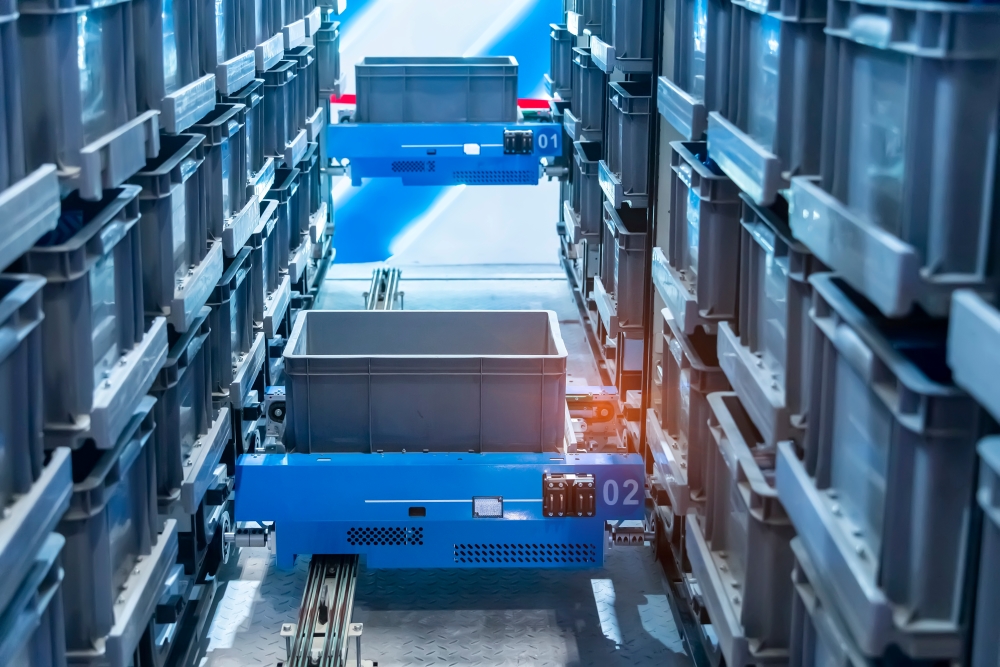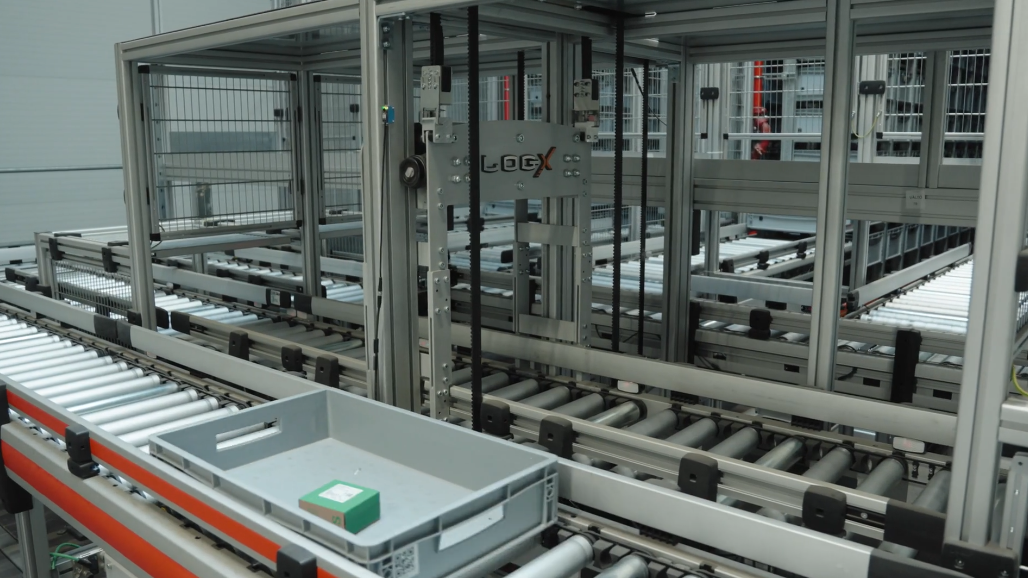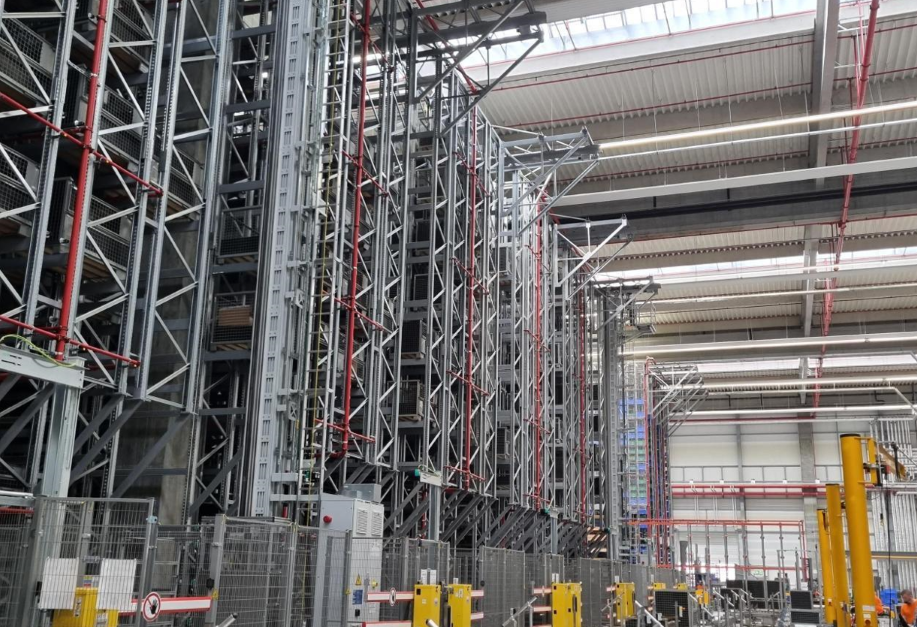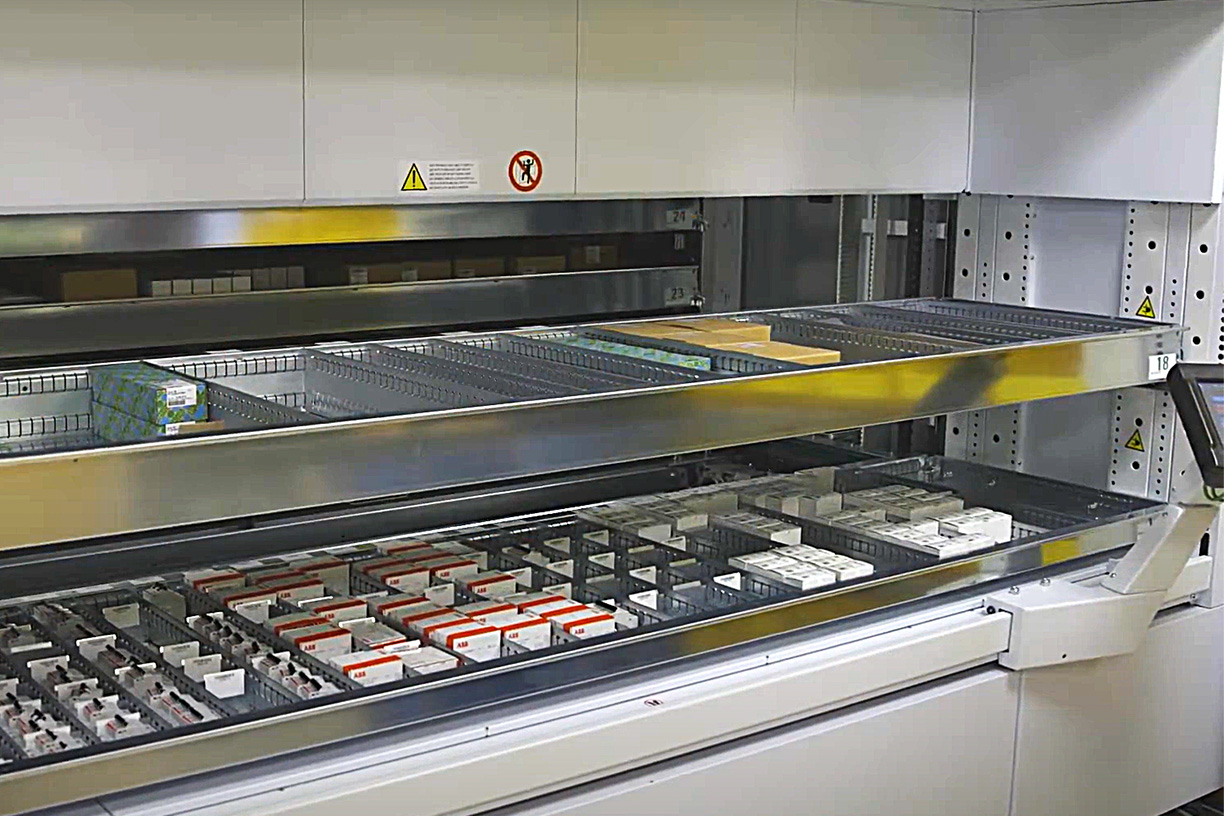Warehouse automation has become essential for modern businesses, especially those aiming to keep pace with increased demand and labor challenges. But how do you know if your warehouse is ready for automation? At Greenspace Industrial, we understand the complexities and rewards of automation, and we’re here to help you make the best decision for your operations.
What is Warehouse Automation?
Warehouse automation is the integration of technology into daily warehouse tasks to reduce manual efforts and increase efficiency. By implementing solutions like Warehouse Robotics and Automated Storage and Retrieval Systems (ASRS), businesses can handle inventory with greater speed and precision, which benefits both the team and the bottom line.
Types of Warehouse Automation
Warehouse automation comes in many forms, each with unique advantages for various operational needs.
- Automated Storage and Retrieval Systems (ASRS): ASRS technology allows automated machinery to manage inventory storage and retrieval quickly, maximizing warehouse space and reducing human error.
- Vertical Lift Modules (VLM): These units efficiently store items vertically, using height to increase storage density without expanding the facility footprint.
- Warehouse Robotics: Robots automate repetitive tasks such as picking and transporting items, improving speed and accuracy.
- Conveyor Systems: Conveyors move goods throughout the warehouse, reducing travel time and improving overall productivity.
- Automated Guided Vehicles (AGVs): AGVs are autonomous vehicles that navigate warehouses, transporting goods with precision and flexibility.
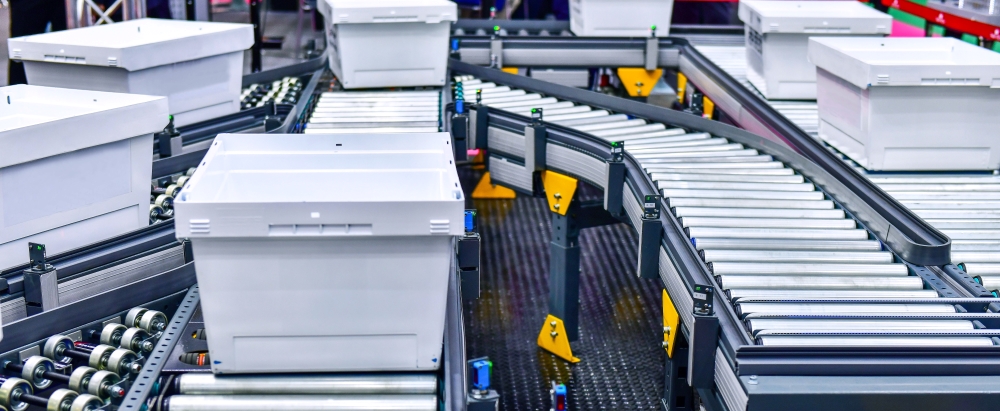
Benefits of Warehouse Automation
Warehouse automation streamlines operations and brings several advantages that directly impact productivity, accuracy, and cost management.
1. Improved Efficiency and Speed
Automated systems perform repetitive tasks faster and more accurately than human labor, cutting down on delays and reducing time spent on every order. Conveyor Systems, for example, can quickly move products from one area of the warehouse to another, freeing up employees for higher-value tasks.
2. Enhanced Accuracy
By reducing human involvement in manual tasks, automation can minimize errors. ASRS and Warehouse Robotics systems are known for their precision, helping to ensure correct item handling and reducing costly mistakes.
3. Cost Savings Over Time
While implementing warehouse automation involves an upfront cost, the savings over time are considerable. Lower labor expenses, decreased mistakes, and enhanced efficiency contribute to major financial benefits.
Signs Your Warehouse Could Benefit from Automation
Determining whether your warehouse is ready for automation can be challenging. Here are some key indicators that may signal it’s time to consider these solutions.
High Error Rates in Order Processing
Frequent picking and packing errors can disrupt customer satisfaction and erode profits. With the help of Warehouse Robotics and ASRS, you can achieve more accurate and reliable order processing.
Increasing Labor Costs and Scarcity of Skilled Workers
Labor shortages and rising costs can strain any warehouse operation. Automated solutions, including AGVs and Conveyor Systems, can handle repetitive tasks that are often hard to staff, ensuring continuity even during labor shortages.
Space Limitations in Your Facility
If your warehouse space is limited, automation can offer creative solutions. Vertical Lift Modules (VLM) maximize vertical storage space, allowing you to store more inventory in the same footprint.
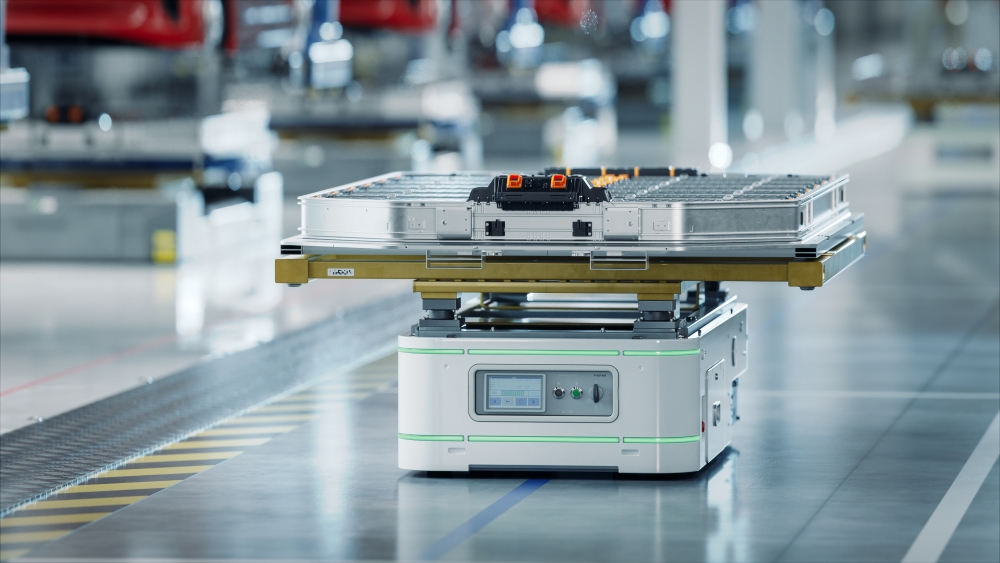
Evaluating Your Current Workflow
Before implementing automation, analyze your existing processes to understand where automation can offer the most impact.
1. Assess Order Volume and Variability
High order volume or variability in demand can overwhelm a manual system, leading to delays and errors. If your warehouse regularly sees spikes in demand, automation can help you handle the load efficiently.
2. Identify Labor-Intensive Processes
Some tasks, like order picking and stock retrieval, are repetitive and time-consuming. Warehouse Robotics and ASRS can streamline these processes, relieving your team from repetitive work and improving overall productivity.
3. Monitor Warehouse Throughput
Warehouse throughput, or the rate at which items move through your warehouse, is critical to meeting customer demand. Automated systems such as Conveyor Systems can increase throughput, ensuring that items move quickly and accurately through each stage of processing.
Costs of Warehouse Automation
While automation offers significant benefits, understanding the costs is essential to making an informed decision.
1. Initial Investment
The upfront cost can be substantial, as it often involves both hardware and software components. At Greenspace Industrial, we provide scalable solutions that align with your budget, helping you maximize value while managing costs.
2. Maintenance and Upkeep
Automated systems require regular maintenance to keep operations smooth. Ensuring proper upkeep will help prevent costly downtime and extend the lifespan of your technology, from AGVs to Conveyor Systems.
3. Training and Transitioning
The transition to automated systems typically requires training to get staff comfortable with new technology. Our team at Greenspace Industrial supports this transition with training programs tailored to your specific system, whether it’s ASRS, VLM, or robotics.
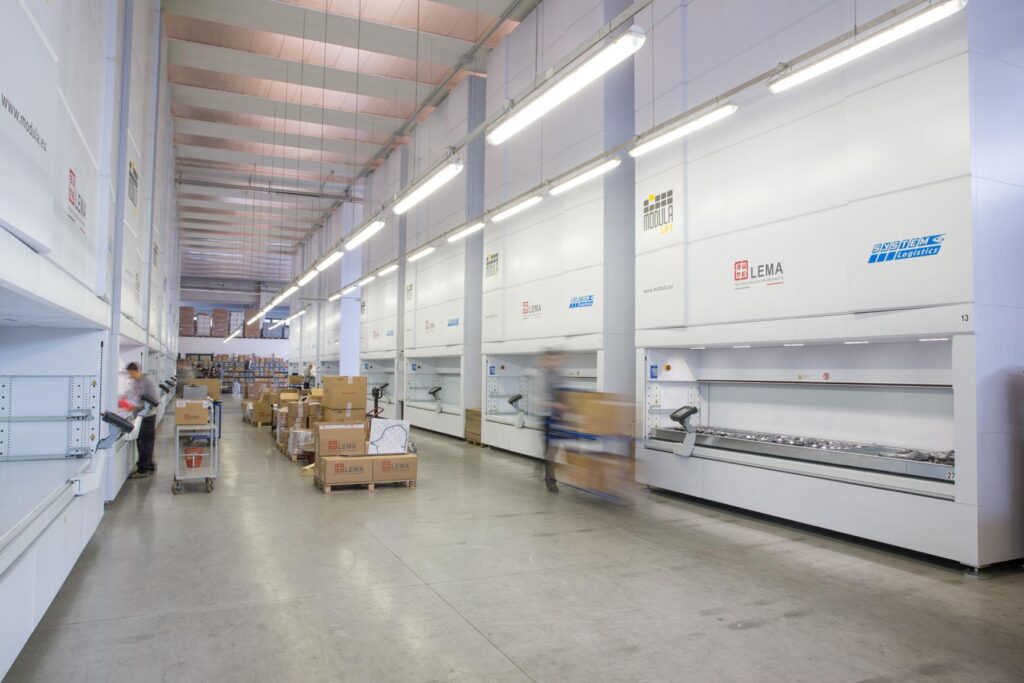
How to Start with Warehouse Automation
If automation seems like the right choice, starting small and expanding gradually is often the best approach. Here’s how to get started.
1. Pilot Programs
Consider starting with a small, manageable pilot program. For example, you could begin by implementing a Vertical Lift Module (VLM) in a high-density storage area or trialing an Automated Guided Vehicle (AGV) for a specific transport route within the warehouse.
2. Work with a Trusted Warehouse Automation Company
Working with an experienced Warehouse Automation Company, like Greenspace Industrial, ensures that you choose the right systems for your needs. From Conveyor Systems to full ASRS setups, our experts will guide you every step of the way.
3. Employee Involvement and Training
Involve your employees early in the process. Our team can train your staff to use and manage automated systems effectively, ensuring a smooth integration with your existing processes.
Challenges to Consider with Warehouse Automation
While automation offers immense advantages, it’s important to consider potential challenges.
Initial Capital Investment
The cost of automation systems, such as ASRS and Warehouse Robotics, can be substantial. A phased approach, focusing on high-impact areas first, can help spread costs and maximize ROI.
Possible Downtime During Implementation
Implementing new systems may require temporary pauses in certain areas of your warehouse. Greenspace Industrial can help minimize downtime by carefully planning installation and transition phases.
Maintenance and Technical Issues
Automated systems require routine maintenance and sometimes face technical issues. Regular maintenance checks on Conveyor Systems, AGVs, and other equipment can help ensure continuous operation.
Should You Automate Now or Wait?
The timing of your automation investment is essential and should align with your current operational needs, growth projections, and overall business goals.
1. Forecast Future Growth
Consider your expected growth rate in the next three to five years. If demand is likely to increase significantly, investing in automation now can ensure that your warehouse can keep pace.
2. Evaluate Technology Trends
Keeping an eye on technology trends in the industry can also help inform your decision. Advances in robotics and AI make warehouse automation more accessible and cost-effective than ever before.
3. Consider Flexibility Needs
Select automation solutions that can evolve alongside your business. For instance, modular systems such as Vertical Lift Modules (VLM) are designed to expand with your warehouse requirements, providing long-term scalability.
Conclusion: Is Warehouse Automation Right for You?
The decision to automate is highly individualized and depends on several factors, including your specific needs, operational goals, and current capacity. For warehouses facing challenges like rising labor costs, frequent errors, or limited space, automation can offer substantial relief. At Greenspace Industrial, we pride ourselves on helping businesses like yours navigate the automation journey with confidence.
From ASRS to Warehouse Robotics and conveyor Systems to AGVs, our solutions are tailored to meet the demands of today’s dynamic warehousing environment. Our experts are here to answer questions, design customized automation plans, and guide you through each step. Whether you’re looking to improve efficiency, reduce errors, or prepare for future growth, our team is ready to help you explore the potential of warehouse automation.

